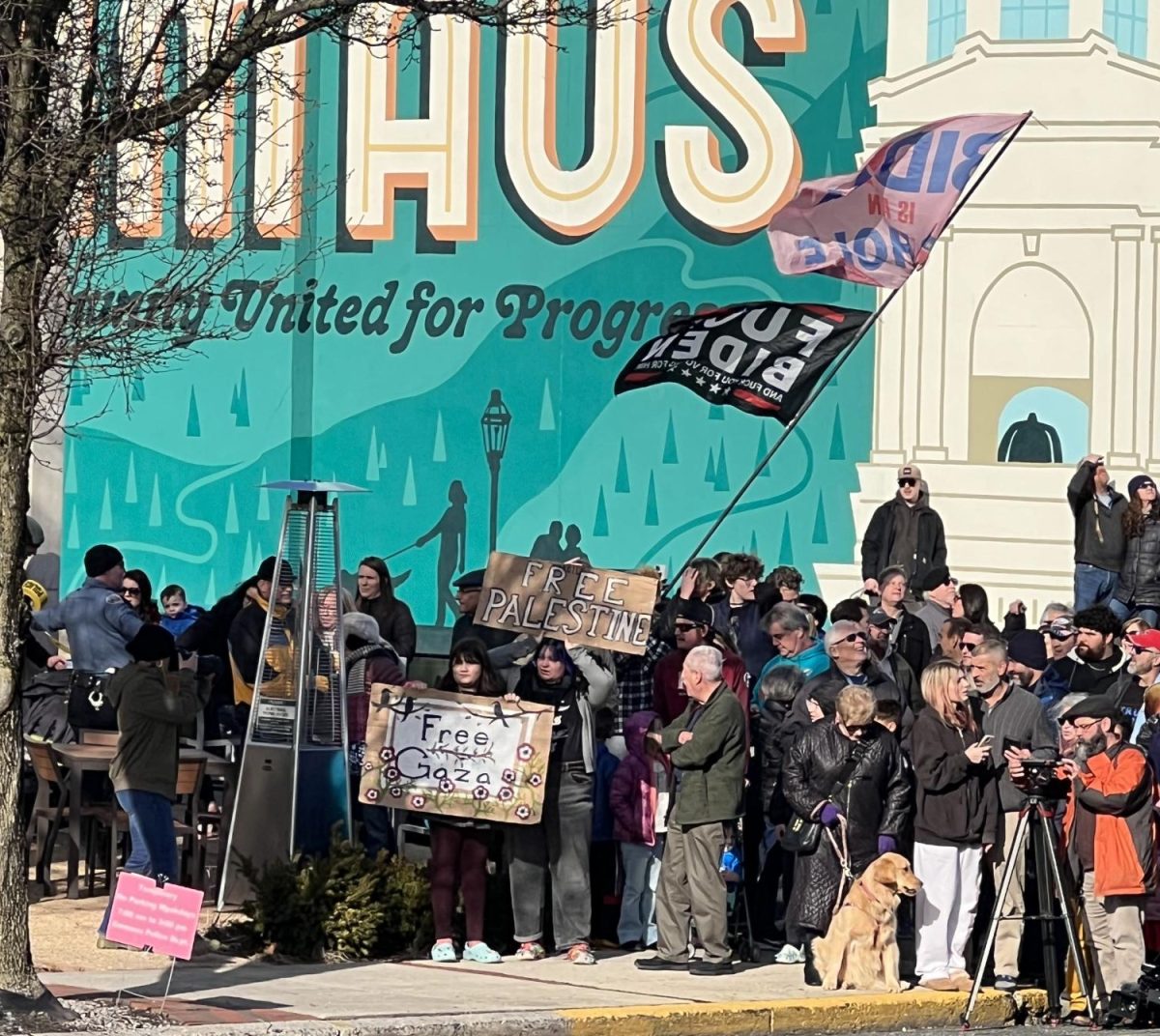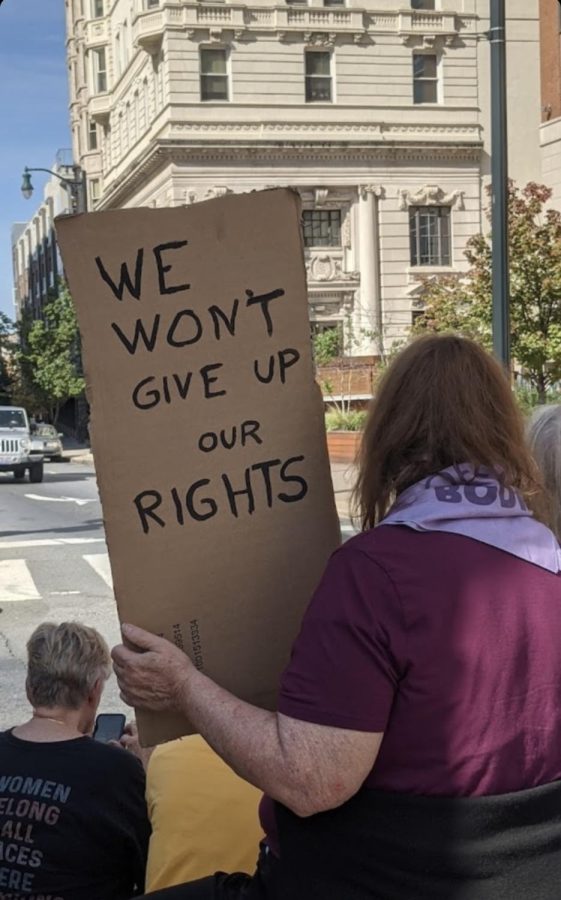“There will be kids who will get out of school and find that there’s no one at home. It’s very likely, almost inevitable, that there will be parents who get picked up [by Immigration and Customs Enforcement] at their place of business or in the streets.”
Muhlenberg University professor Dr. Erika M. Sutherland, among countless others, has warned how new immigration policies will impact Lehigh Valley students. On Jan. 20, President Donald Trump signed into law the mass deportations he long promised his supporters over the course of his 2024 campaign. In an Executive Order titled “Protecting The American People Against Invasion,” the Trump administration laid out several actions, including allowing for the deportation of individuals without a court hearing, and increasing the number of Customs and Border Protection (CBP) as well as Immigration and Custom Enforcement (ICE) agents. Since the beginning of Trump’s second presidency, ICE has deported over 37,660 people, according to Reuters.
The most concerning aspect to many families is the Trump administration’s allowance of immigration-related arrests at schools, a practice that has been prohibited since 2011. According to a Jan. 28 statement from the White House, no raids on schools have been carried out yet, but fears persist among schools and families — including those in the Lehigh Valley.
“We have a fair number of students [at Muhlenberg] who are either in protected status, or in a temporary status, or who have parents who are in a vulnerable situation and there is absolute, abject terror,” Sutherland said. In addition to teaching Spanish at Muhlenberg University and serving on the Allentown School District (ASD) Foundation Board, Sutherland works with local immigrant support group Grupo de Apoyo e Integracion Hispanoamericano and has met with community members and local school districts, including Allentown School District, to discuss what steps need to be taken to protect undocumented students while still complying with federal law.
On Jan. 29, East Penn School District Superintendent Dr. Kristen Campbell sent an email to parents explaining security measures the district has in place to prevent unauthorized entry to school buildings.
It is important to note that ICE cannot enter a school without a signed judicial warrant.
“Our schools continue to maintain strict visitor entry protocols,” the letter read. “All visitors must check in at building reception following established School Safe ID procedures. Students will only be released to a parent, guardian, or emergency contact listed in PowerSchool.”
The email lacked any specific references or reassurances pertaining to students’ immigration status unlike other schools, simply stating, “changes regarding federal immigration policy may be causing feelings of anxiousness or concern for some of our students and families,” and that school counselors are available to meet with students.
The letter also said the district met with legal counsel to determine proper protocols for dealing with federal agencies. The school district denied The Stinger’s Right-to-Know request for access to these protocols. As of publication, EPSD Legal Counsel Marc Fisher had not responded to a request for comment.
While the district takes steps to protect the privacy and safety of students, many teachers and students still feel concerned about the current uncertainty surrounding immigration policy.
“In some of my classes, there are Latino students who have expressed some concern about either racial profiling, or they ask questions about if ICE can come into the building and arrest students or potentially detain and deport them. So they have expressed some concerns, understandably,” EHS Spanish teacher William Montepeque said. Montepeque also confirmed that he and other teachers did not receive supplemental materials from the school or district regarding the changes aside from the aforementioned email from Campbell.
According to The Morning Call, both Allentown and Bethlehem Area school districts held public meetings to try to assuage families’ fears. On Jan. 23, ASD Superintendent Carol Birks spoke at a school board meeting, calling recent conversation around immigration “unsettling,” and announced plans to “provide new guidance so that everyone understands their rights and is equipped with the tools to handle the presence of non-local law enforcement on District property.” Neighboring Parkland School District issued a memo on Jan. 29, affirming they will do their best to uphold student safety in a time of legal uncertainty, writing, “We have a legal and ethical obligation to protect the privacy of our students. Immigration status is not information we collect or disclose.”
The 1982 Supreme Court ruling in Plyler v. Doe ensured that undocumented students have the right to attend public school and that this right cannot be denied based on their immigration status. Additionally, the Family Educational Rights and Privacy Act (FERPA) limits the disclosure of student information, further protecting students’ privacy — as made clear in the district’s statement.
Some students fear not only for themselves but also for their family members.
Emmaus High School 2024 alum Kayla Gonzalez, whose family is originally from Mexico, detailed the fear she felt during Trump’s first term for her family members.
“Personally, my grandfather was deported a few years back, so I have worked with him when I was younger to kind of help him get back here, and thankfully, he’s back on U.S. soil as a citizen,” Gonzalez said. “I saw how it really does impact your family.”
Gonzalez, now a freshman at Drexel University in Philadelphia, has become an active part of the peaceful protest scene in the city, long regarded as a “sanctuary city” for immigrants.
“Someone had posted it to the group chat, saying, ‘Oh, there’s a protest going on,’ so I immediately got up the next day, got and went to get posters, and we went to the ‘Rocky’ Steps,” Gonzalez said.
Similarly, EHS senior Anna Chavolla feels passionately about the issue, especially on how it will affect undocumented students.
“ICE shouldn’t interfere at all with learning in school. It’s unethical, like these students are trying to get an education. These are not problems that they should be facing,” Chavolla said.
Gonzalez thinks more people would be sympathetic to undocumented immigrants’ plight if they considered the pain their families go through as well.
“A lot of people have the privilege because they’re not affected by this, or they’ve never had to experience losing a loved one from deportation or even thinking of the idea that their family could be separated,” Gonzalez said.
“They don’t believe that it’s worth their time, or people here have that privilege, and if these people really, truly felt the scare of losing a family member or the scare of your family being separated, they would be more supportive [of immigrants].”
Sutherland, like Gonzalez and Chavolla, agrees that students should not have to face the threat of deportation at such a young age.
“I find it upsetting that people would be angry at children for being in this country. Children are children, first and foremost, and again, children are our future. They are our hope.”








